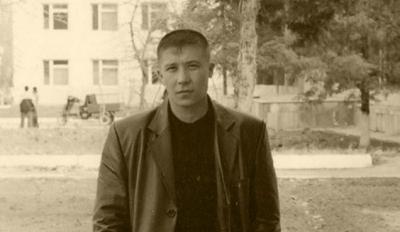
On November 16, police in Jizzak city, Uzbekistan, arrested Uktam Pardaev, a human rights defender, in apparent retaliation for his documentation of the Uzbek government’s use of forced labor in the cotton sector. The arrest is the latest in a series of increasingly frequent and severe reprisals against human rights defenders in Uzbekistan.
Uktam Pardaev, a member of the Independent Human Rights Organization of Uzbekistan, has documented human rights violations, including state-orchestrated forced labor in the cotton sector, since 2005. During the recently concluded 2015 cotton harvest, Mr. Pardaev met with and provided information to the World Bank and the International Labour Organization (ILO), which monitored labor practices in World Bank project areas during the harvest, and to the Cotton Campaign.
“The authorities should immediately drop the retaliatory charges against Uktam Pardaev,” said Elena Urlaeva, head of the Human Rights Alliance of Uzbekistan. “We call on the Uzbek government to stop its use of forced labor and to permit activists, journalists and independent monitors to investigate and report human rights concerns without fear of reprisals.”
Monday, November 16 at approximately 8:30 am, ten police officers and a representative of the prosecutor general’s office entered Uktam Pardaev’s home, confiscated his files, computer and camera, and arrested him. Police have detained Mr. Pardaev in the Dustlik district police station since. The police also searched the home of Pardaev’s brother Sharof. In an interview with Radio Free Europe, Radio Liberty “Ozodlik,” Sharof Pardaev reported that the police accused his brother of extorting 500,000 soums (~$100) from a farmer two years ago. In fact, in 2013 the farmer asked Uktam to report a complaint, but according to the police, the farmer testified that Uktam extorted her for the money.
Uzbek officials have targeted Uktam Pardaev previously. In January, the hokim of the Jizzakh region publicly called Pardaev “a traitor to the motherland” during a meeting about cotton production, and the government denied Pardaev an exit visa. During the 2014 cotton harvest, police and security services threatened reprisals against him for documenting forced labor. In 2012, police arrested and detained him for 15 days, forcing him to stop reporting on forced labor during the cotton harvest. The current charges trumped up by the police against Pardaev carry a penalty of up to 5 years in prison.
The arrest of Pardaev is the latest in a series of increasingly frequent and severe reprisals against human rights monitors in Uzbekistan this year. In May men attacked fellow human rights defender Dmitry Tihonov on the streets of Tashkent, where police are omnipresent. In September, police arrested Tihonov twice, and a surveillance squad of six men followed him from Angren to Tashkent. Police arrested fellow human rights defender Elena Urlaeva four times this year, twice subjected her to body-cavity searches, and arrested and conducted a body cavity search of Malohat Eshankulova. In October, police brought charges against Tihonov, and the office in his home was intentionally burned down.
“The retaliation against human rights defenders exposes the Uzbek government’s lack of commitment to national and international laws that prohibit freedom from forced labor and protect civil rights,” said Umida Niyazova, director of the Uzbek-German Forum for Human Rights. “The ILO, World Bank, European Union, German and U.S. governments should publicly denounce the arrest of Uktam Pardaev and urge the Uzbek government to permit reporting on human rights concerns without fear of reprisals.”
The arrest occurred less than one week after a round table meeting of the Uzbek government, ILO, World Bank, European Union, United States government and others to discuss the 2015 cotton harvest.

